A Lasting Legacy of Achievement
A closer look at four retiring professors who have shaped the College's history
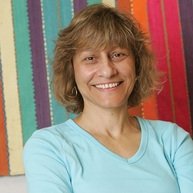
Since her arrival at Pitzer in 1999, Ethel Jorge has shared her expertise in community-based language learning, Latin American cultural studies, popular culture, and more in her extensive scholarship and teaching. Jorge's innovative courses include Spanish in the Community: Children of Immigration; Latin American Cultural Diaspora; and Los Angeles, the City, and Its People. Before joining Pitzer's Modern Languages, Literatures, and Cultures Field Group, Jorge earned a PhD in Latin American Cultural Studies from Union Institute in Ohio and a bachelor's and master's in Latin American History from the Universidad de la Habana in Cuba.
At Pitzer, Jorge created the Community-Based Spanish Practicum and developed a more comprehensive integrative Spanish program that links foreign language teaching to student engagement with multilingual and multicultural communities. She increased connections with other academic disciplines and in the College's study abroad programs in Spanish-speaking countries.
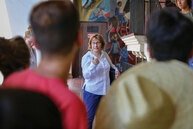
Jorge's research includes community-engaged language pedagogy, interdisciplinary transnational language and culture connections, and popular culture in the Spanish-speaking world. Jorge has served as an associate editor of Hispania, the journal of the American Association of Teachers of Spanish and Portuguese (AATSP). She has also produced documentary films about Uruguayan culture and society. In 2014 she was named Outstanding Teacher of the Year for College-Level Educators by the AATSP. The award recognized Jorge's exceptional teaching and her contributions to the scholarship of community-engaged language teaching and learning.
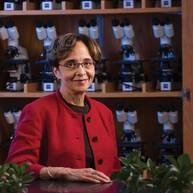
Muriel Poston served as dean of the faculty/vice president for academic affairs at Pitzer from 2012 to 2015. Poston was also named the vice president of strategic initiatives at Claremont McKenna College in 2021. Poston has sought to broaden the involvement of underrepresented students and faculty in science, technology, engineering, and mathematics (STEM). Her education research includes undergraduate biology education, and her scientific research Includes plant systematics, especially the evolutionary relationships of the neotropical family Loasaceae. Prior to Pitzer, Poston was the division director for the Human Resource Division in the Education Directorate at the National Science Foundation (NSF).
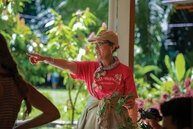
She also served as dean of faculty and professor or biology at Skidmore College. At Howard University Poston spent over 20 years as a professor in the Department of Biology/Botany. Poston previously was a program director and deputy division director in the Biological Sciences Directorate at the NSF. She has served as chair of the Committee on Equal Opportunities in Science and Engineering and the NSF Advisory Committee for the Biological Sciences Directorate. She has also served as a member of the National Academy of Sciences and National Research Council Board of Life Sciences. She was elected as a fellow by the American Association for the Advancement of Science and has been a member of the board of directors of the American Institute of Biological Sciences as well as the Advisory Committee for AACU/Project Kaleidoscope.
Poston earned a bachelor's degree from Stanford University, a master's and PhD from UCLA, and a JD from the University of Maryland.
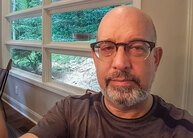
Daniel A. Segal brought his extensive knowledge of the Caribbean, post-Columbian world history, and the social construction of race to Pitzer in 1986. Among his courses were a two-semester world history sequence and a seminar on Donald Trump's America. In 2017, Segal was awarded a Fulbright U.S. Scholar research fellowship to examine the entry of the Brazilian state into the northern Amazon. Within the context of a larger theoretical study of "the state" across historical contexts, Segal explored the impact of the increased presence of the federal state in the former Brazilian territory of Roraima from the late 1980s to the present.
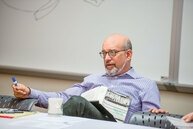
Segal's academic publications include "Witnessing Chimpanzee-Human Closeness: Jane Goodall at Gombe and Since" in Anthropological Quarterly and "Some Reflections on Editing with Contrarian Sensibilities" in Cultural Anthropology. Segal also received the National Endowment for the Humanities "Travel to Collection Fellowship" to visit Haitian art in U.S. museums. Segal was the inaugural director of Pitzer's Munroe Center for Social Inquiry and is a former fellow of the Center for Advanced Study in the Behavioral Sciences at Stanford University, as well as the past secretary or the American Anthropological Association and past president of the Society for Cultural Anthropology.
He graduated summa cum laude from Cornell University and earned his master's and PhD from the University of Chicago.
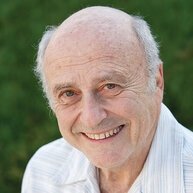
AIbert Wachtel has introduced students to the wonders of literature, writing, and creative thought since he arrived at Pitzer in 1974. Wachtel has passed on his wellspring of knowledge in James Joyce, Shakespeare, epic and scripture, the ancient world, theory of literature, and non-fiction and fiction writing.
A sample of Wachtel's classes include: The Bible and Homer, Greek Tragedy in Translation, Yeats and Magic, and Creative Writing and Creative Thought. His academic honors include three years as a National Defense Education Act Fellow, the Creative Arts Institute Fellowship, two National Endowment for the Humanities grants, and an appointment asa Danorth Associate. Wachtel's publications include "The Basement" in Broadkill Review, "Goddess" in The Gettysburg Review, and "Modernists" in Critical Survey of Poetry. He is the editor for Critical Insights: A Portrait of the Artist as a Young Man (2011) and Critical Insights: James Joyce (2013) with Salem Press. He has also been a member of the Writer's Guild, a distinction granted to writers whose work has been performed in film or on television.
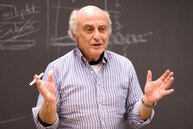
Wachtel received his PhD from the State University of New York and his bachelor's from Queens College. Prior to his arrival at Pitzer, he also served as an assistant professor at UC Santa Barbara and as an instructor and assistant to the dean at the State University of New York.